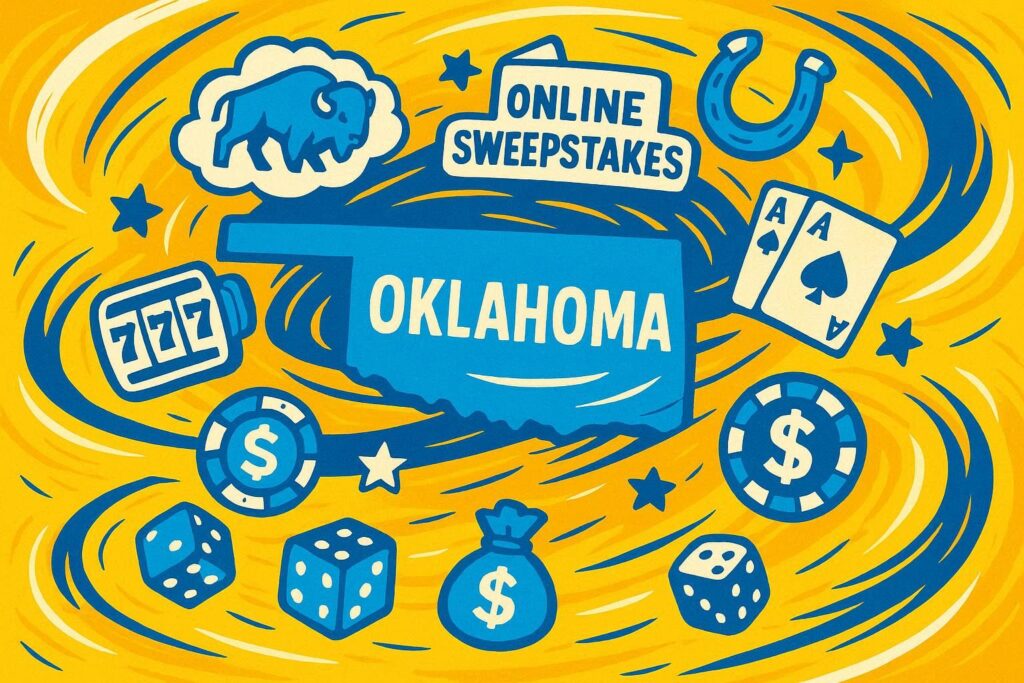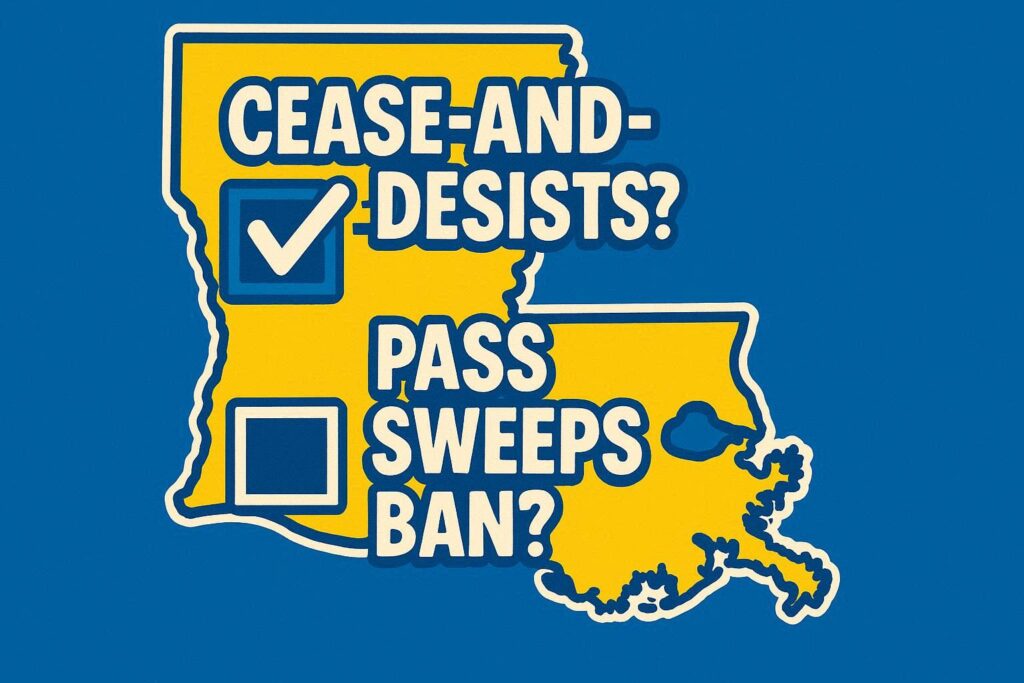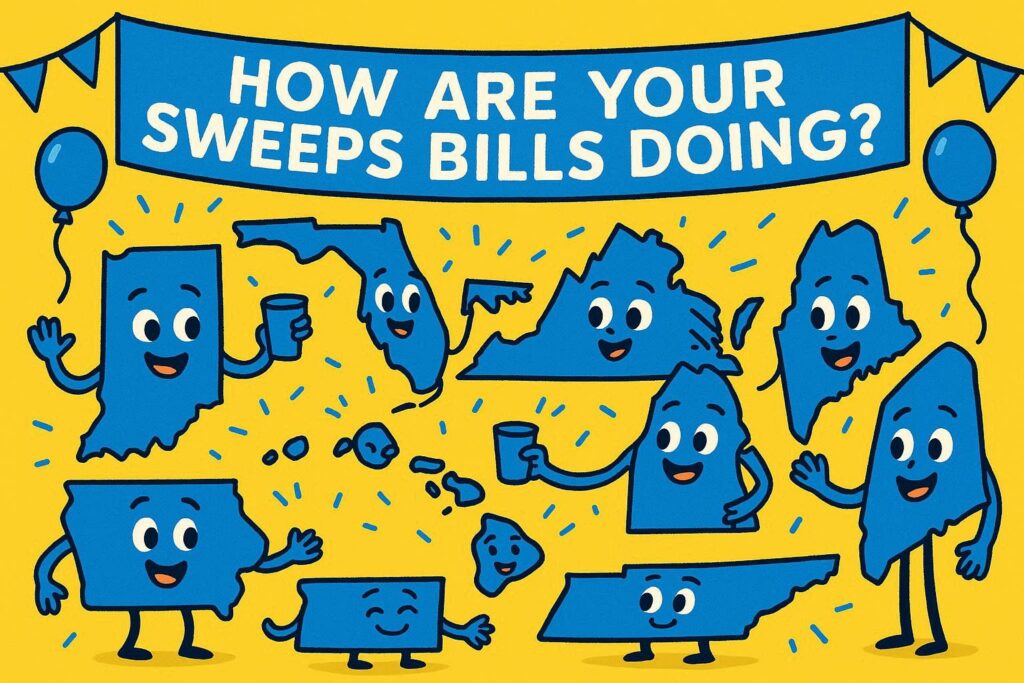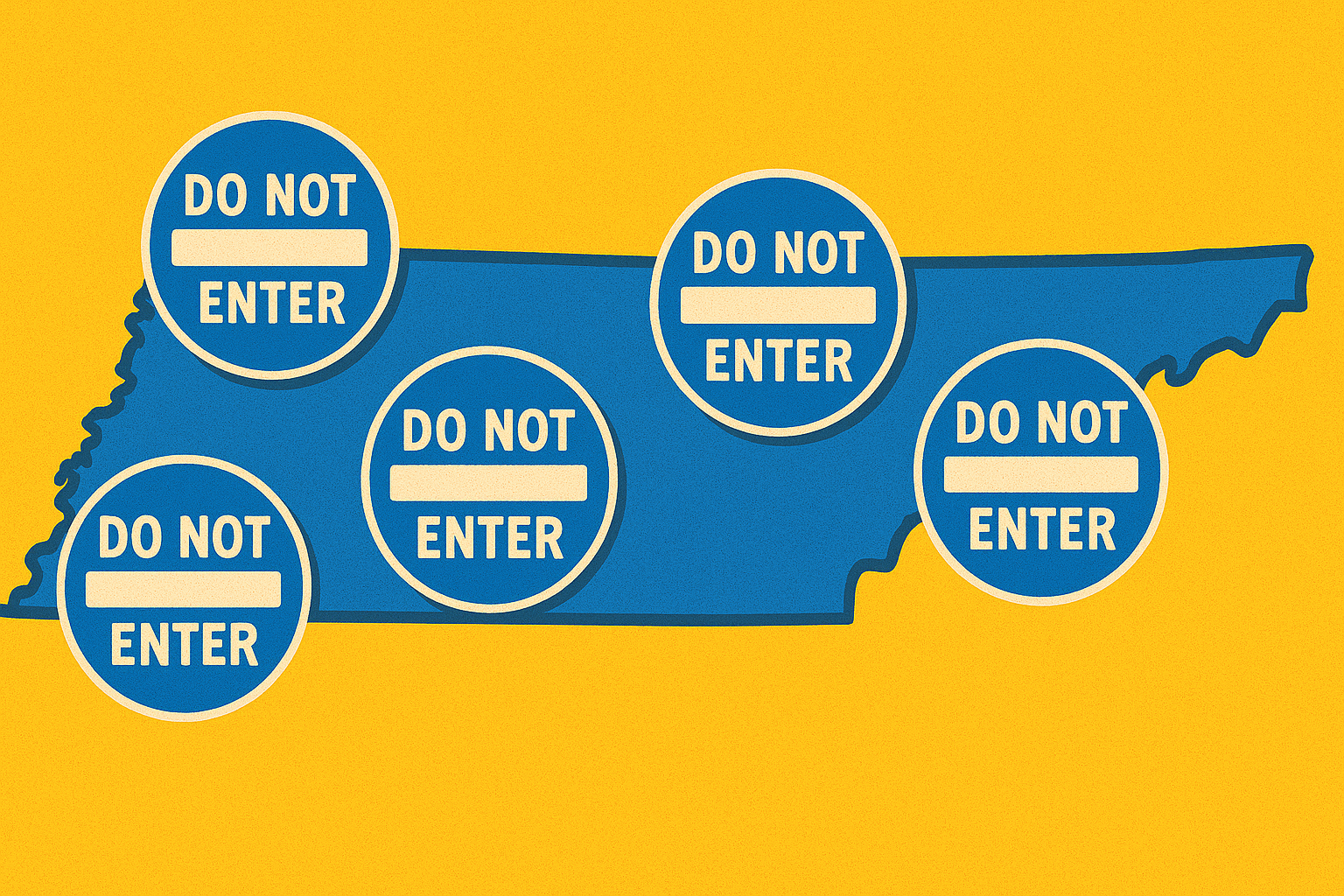Sweepstakes casinos have until Jan. 1, 2026, to leave California. From then on, online sweepstakes gaming sites that use a dual-currency model will be illegal in the state.
That’s because Gov. Gavin Newsom this week signed Assembly Bill 831, which outlaws sweeps casinos and also criminalizes any entities that “knowingly and willfully support directly or indirectly the operation, conduct, or promotion of an online sweepstakes game within this state.”
This current version of AB831 passed through the California Legislature after the old version — which dealt with tribal-state gaming compacts — was gutted and amended in order to fast track this sweeps ban, culminating in a unanimous Assembly approval on Sept. 12 and Newsom signing the bill into law on Oct. 11.
California part of a wave of action against sweeps gaming
California becomes the fourth state to legislatively outlaw sweeps casinos this year, joining Montana, New Jersey, and Connecticut. New York has also passed its own legislation banning sweeps casinos, but Gov. Kathy Hochul has yet to take action on the bill. And Nevada also passed a bill that strengthens the state’s enforcement capabilities on sweeps casinos.
Outside of state legislatures, however, legal authorities or regulatory agencies in other states have also taken action via cease-and-desist orders, including Louisiana, New York, Maryland, Mississippi, Arizona, Tennessee, Minnesota, West Virginia, Michigan, and Delaware.
These orders don’t carry the same weight as a bill that gets passed and becomes state law. Operators not sent cease-and-desist orders often continue to operate on the down low, and operators who are sent orders can challenge them in court. No sweeps casino, though, has yet to issue such a challenge.
Long story short: The most sure-fire way to rid a state of sweeps casinos is for the governor to sign a bill, and California has just done that — delivering the Yuhaaviatam of San Manuel Nation and the state’s other large gaming tribes, who saw sweeps casinos as an infringement upon their exclusive right to offer gambling in California, a massive victory.
Winners, too, are social casino companies like SciPlay, part of Light & Wonder, whose executives openly said their social gaming revenues dipped in quarter two in large part due to increased competition from sweepstakes casinos.
How operators are already reacting
So far, a handful of notable sweeps gaming brands have exited California.
Dara Casino, Carnival Citi, and Ruby Sweeps all left the state after AB831 passed but before Newsom signed it. High 5 Casino departed California in early September, but it’s also dealing with a lawsuit in the state and that likely factored into the operator’s decision. Other operators are relaunching in states where they previously blocked access, and some others are lowering their minimum age requirement from 21 to 18. These moves are likely being made to attempt to offset the significant revenue lost when California goes fully offline.
The exit timelines for other operators in the coming months will vary.
Some will shut things down soon out of an abundance of caution, like Dara Casino, Carnival Citi, and Ruby Sweeps did.
Others will take this thing all the way up until the deadline, operating in California until Dec. 31, 2024. This was the approach taken by several operators in New Jersey — serving up its Sweeps Coin games right up until the sweeps ban bill in that state took effect.
Some operators, including VGW sites Chumba Casino, LuckyLand Slots, and Global Poker, will likely choose to keep their Gold Coin games live in California. AB831 applies to sweepstakes casino gaming using the dual-currency model of Gold Coins and Sweeps Coins. It does not apply to social casino gaming, which is that these operators’ Gold Coin games — where there is no chance of redeeming currency for real cash — constitute. They’re the same as the types of games offered at Play.Yamaava of the Yuhaaviatam of San Manuel Nation, for instance.
‘Turned his back on choice, innovation and economic gains’
Sweeps opponents are applauding Newsom’s signature.
Victor Rocha, chair of the Indian Gaming Association and a leader of the anti-sweeps movement in California, said on LinkedIn that “sweepstakes gambling was dead man walking a year ago when the California tribes took off the gloves and went after them.”
“This industry wasn’t built to last,” Rocha added in a separate post. “It was all about the arbitrage. They knew this flimsy house of cards would eventually collapse. Now the game is about disgorgement. Think of all those beautiful dollars coming back to the people of California.”
Added Howard Glaser, global head of government affairs and legislative counsel at Light & Wonder: “It’s been one year since the ‘alarm bell’ was pulled on sweepstakes casinos at last year’s G2E — a year capped off by yesterday’s signing of a stringent sweeps enforcement bill by California’s Governor.”
On the other side, the Social Gaming Leadership Alliance issued a statement lamenting Newsom signing what it called a “poorly designed bill that had zero industry consultation and was backed by conflicted proponents.”
“Voters, players who love online social games, California tribes, and online social games operators all made their position clear: They didn’t want a ban on this popular, safe form of entertainment,” said Jeff Duncan, the executive director of the SGLA, in the statement. “We hoped that Governor Newsom would see past the anti-competitive efforts of the powerful, well-funded tribes behind this bill and veto AB 831, but he chose the easy, short-sighted path and turned his back on choice, innovation and economic gains.”
The SGLA will now turn its full focus to New York, where Gov. Hochul has until the end of the year to make a decision on her state’s sweeps ban bill, which passed in June.
Immediate, long-term future of legislation
Currently, two other states have active bills that would ban sweeps casinos, although neither are expected to generate much momentum.
Both bills — one in Ohio and one in Massachusetts — would also legalize real-money online casinos, a gambling expansion that has been met with significant resistance in recent years as the push toward widespread iGaming has all but halted in the United States. You can include Ohio Gov. Mike DeWine in that resistance, as he told reporters this summer “I’m not for it” in regards to legalizing online casinos.
At a panel discussing the future of the sweepstakes casino industry at last week’s Global Gaming Expo, panelists agreed that Texas and Florida could be two states to watch in the future when it comes to restrictions on sweepstakes casinos.
Florida is certainly a logical candidate, as it had two sweeps ban bills introduced this year that didn’t gain traction before the session ended and the state also, like California, has a gambling scene essentially run by tribal interests, with the Seminole Tribe of Florida owning Hard Rock.
Texas is a state known to be highly restrictive on gaming and gambling. However, its next legislative session won’t start until 2027, so no bills could see action until then at the earliest.









